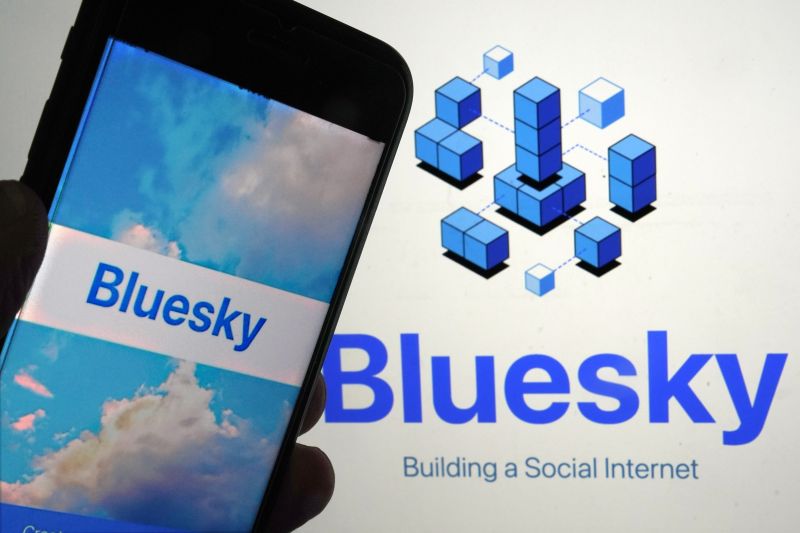Users are flocking after the US election result
In February 2023, a small group of techies unveiled a new social network by invitation only. They deliberately debuted their creation, Bluesky, with little… fanfare so they could closely manage its development, reports New York Times.
But of late, growth has been anything but slow and steady, as its “digital refugees”. X of Elon Musk flock to the platform.
Last week, Bluesky’s growth skyrocketed, more than doubling to 15 million users, as many look for alternatives to X, as well as Facebook and Threads. It has soared to the top of Apple and Google’s digital app stores as the most downloaded (or “downloaded”) free app. Its rise was so rapid that the company was forced to grow almost overnight.
Bluesky’s 20 full-time employees work around the clock to deal with the issues that come with overgrowth: site outages, code bugs, and content moderation issues. Most importantly, they are trying to keep the early adopters of the app happy as it has been flooded with new members.
“We as a team pride ourselves on our ability to scale quickly,” Jay Graber, 33, Bluesky’s chief executive, said in an interview. “But there are always some intensifying ‘headaches’.” He added that the app, which is still a David compared to… Goliaths Facebook, Instagram and X, adds more than a million new users a day. Bluesky is experiencing explosive growth amid upheaval in the social media world. After Elon Musk bought Twitter in 2022, he transformed it into X, changing many of its functions, and alienating some of its most loyal users. Threads, an X-like app introduced by Meta last year, it relies primarily on an opaque algorithmic check that it diminishes political issues from what users see. This has forced some people to turn to other networks, including Bluesky, to discuss serious social issues.
From the former Mr. Twitter, Jack Dorsey
From its inception, Bluesky aimed to set itself apart from other social media. The project grew out of an idea from Twitter founder Jack Dorsey, who said he hoped to build a “decentralized” social network. That meant building the app with an “open protocol,” which keeps the power of the platform and decision-making out of the hands of any one company or group of people. Bluesky was initially funded by a grant from Twitter under Dorsey. Musk cut ties with the Bluesky team after buying Twitter.
From there, a team of about six people, led by Graber, began building the “AT protocol.” That’s a technical term for the code that would essentially allow independent developers to build their own social networks on top of it, while allowing people to transfer their digital identity and information across different social networking platforms. Using this technology, Bluesky executives say, people can customize their own algorithms to see the kinds of posts they want on social media.
In contrast, Facebook and TikTok lock people into their platforms, and make it difficult for them to switch to competitors. The apps are known as “walled gardens”, meaning that what is published on individual platforms remains exclusively on them. (In March, Meta loosened that stance by allowing users to turn on an option that shares their posts on Threads and other social networks.)
Bluesky gained ground after Musk began making radical changes to X, including promoting accounts that paid for blue check status and removing content moderation rules. As it placed fewer limits on speech on X, some people sought a less harmful online atmosphere on Bluesky. In September, Bluesky’s popularity rose after X was banned in Brazil when Musk refused to comply with a court order to freeze some accounts. More than three million people have joined Bluesky. The last week and a half has been a turning point.
Ever since Donald Trump won the presidential election, X users have left the platform due to Musk’s close ties to Trump. They often flock to Bluesky. More than 116,000 people in the United States deactivated their X accounts the day after the election.
At the same time, the British newspaper The Guardian announced that it will no longer publish content on its official accounts on X (formerly Twitter), citing “the often unpleasant content promoted or found on the platform”. The Guardian has more than 80 accounts on X with around 27 million followers.
Similar decisions have been taken by many other companies active in various sectors, such as other media, advertising companies or even sports clubs.
Paraphrasing the American expression “Sky is the limit”, “Bluesky is the limit”. We would say that the explosive rise without limits also brings explosive challenges for the new application.




